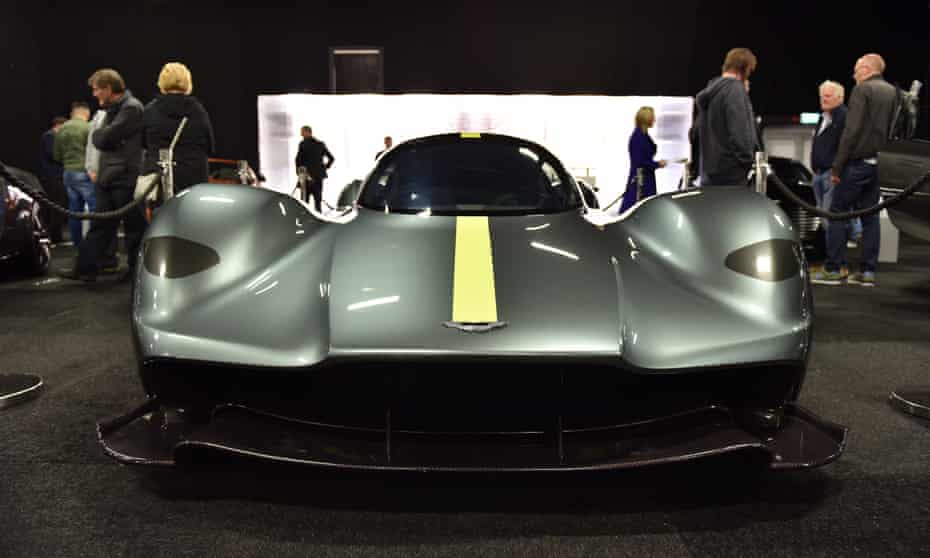Aston Martin optimistic after sales surge and slashed losses in 2021
Carmaker expects financial improvements following supply chain issues and a slow start to ‘hypercar’

Aston Martin Lagonda reduced its losses in 2021 as it reported surging sales amid ongoing disruption to its supply chain and a slow start to deliveries of its new “hypercar”, but said it expected its finances to improve this year thanks to strong demand.
The luxury carmaker, best known for making James Bond’s vehicles, reported a £76.5m operating loss for 2021, compared with a loss of almost £323m a year earlier.
Sales to dealers climbed by 82% during the year, after it was able to return to more normal operations following 2020’s Covid restrictions.
The company began deliveries of its £2.5m Valkyrie hypercar in December, and shipped 10 vehicles to customers, however this was at a slower pace than originally expected.
The company said in January the lower-than-anticipated number of Valkyrie deliveries would make it miss its annual profit target by £15m.
Aston Martin expects to deliver between 75 and 90 Valkyrie vehicles in 2022, and said all of its Valkyrie coupes were sold out, with a waiting list.
The carmarker delivered more than 3,000 of its DBX sports utility vehicle – targeted at wealthy female customers and on which the company is pinning its recovery – in 2021, accounting for half the vehicles sold through dealers.
It is is aiming to increase the number of cars it produces by about 8% in 2022, to 6,600 vehicles, which it hopes will enable it to improve its adjusted profit by half. It plans to sell around 10,000 cars a year by 2024-25.
The company said the return of the Aston Martin name to Formula One in 2021 had increased its “brand exposure, desirability and global awareness”.
Aston Martin’s chief executive Tobias Moers said it was seeing demand from customers for all models.
“Brand desirability is strong as evidenced by retails outpacing wholesales and the demand we see for our products, with the Aston Martin Valkyrie Spider, two-times oversubscribed following its launch in the summer,” he said.
He added that the order book was filling up for its plug-in hybrid Valhalla supercar, which the company now expects to start delivering to customers in early 2024.
The carmaker, which was saved from collapse in early 2020 in a £500m rescue deal by a consortium led by the Canadian billionaire Lawrence Stroll, said it had faced “new and old challenges” in 2021 amid supply chain constraints and the pandemic.
Stroll, the firm’s executive chair, said that when he invested he expected the company’s transformation to take “four to five years”.
“We have made very strong progress already and are well on plan to achieve our ambitious goal,” Stroll said.
Aston Martin’s shares, which have experienced a mostly downwards ride since its disastrous stock market flotation three years ago, rose by as much as 5% in early trade on Wednesday.